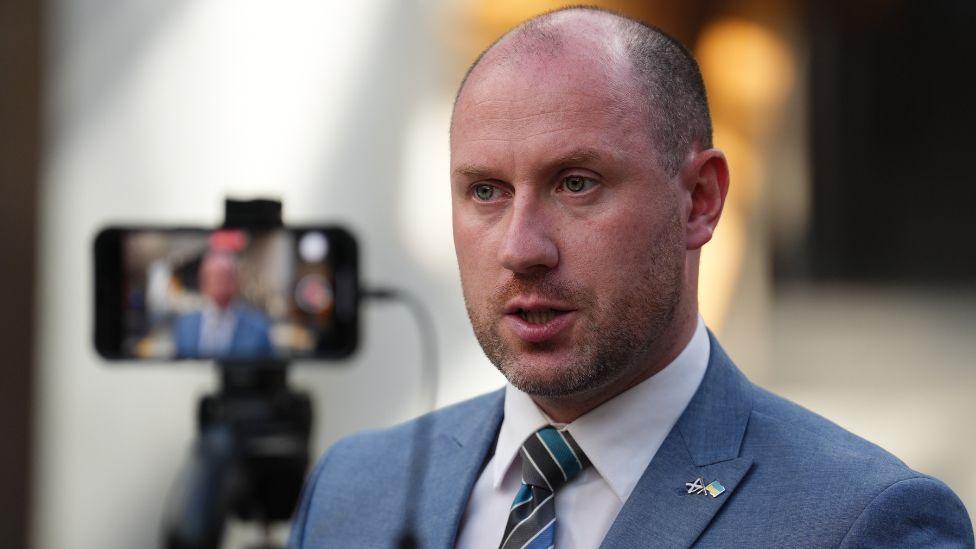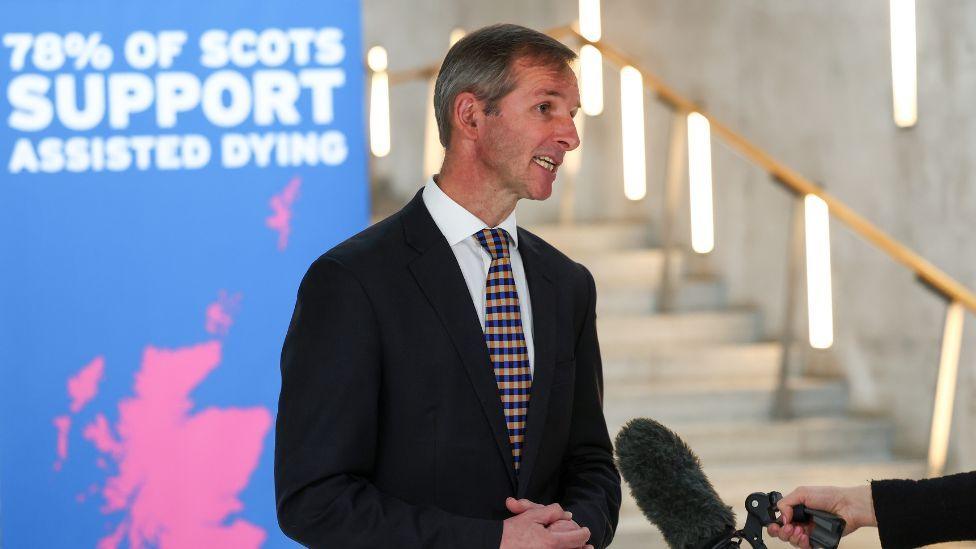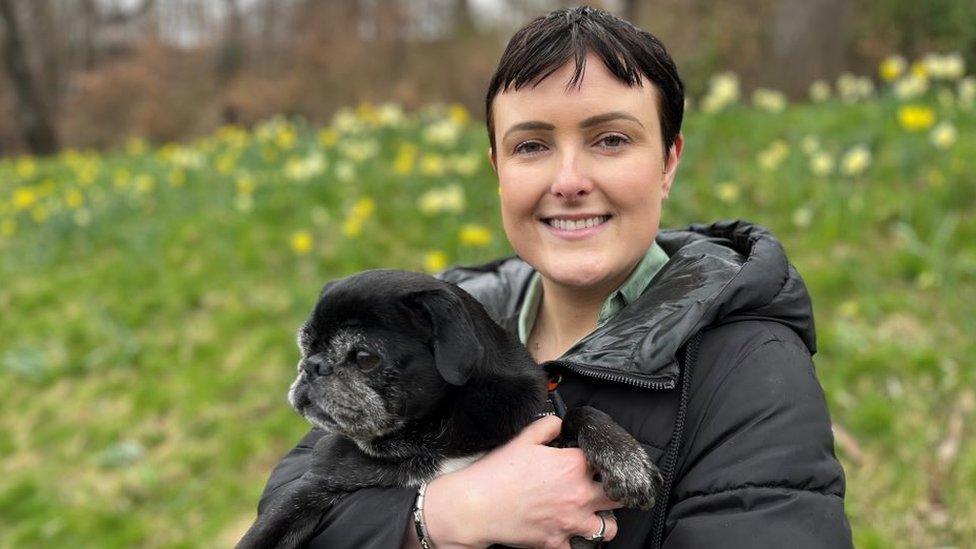Scottish government: Assisted dying bill not in Holyrood's powers

Health Secretary Neil Gray says issues relating to "medicines, medical supplies and poisons" are reserved to Westminster
- Published
Proposed legislation to allow assisted dying in Scotland is outside Holyrood's powers, the Scottish government has claimed.
Health Secretary Neil Gray said issues relating to lethal drugs were reserved to Westminster.
He said it was the government’s view that “the bill in its current form is outside the legislative competence of the Scottish Parliament”.
Liberal Democrat MSP Liam McArthur, who tabled the bill, said he was "very confident" that the UK and Scottish governments would work together to ensure it becomes law if backed by MSPs.
The presiding officer – who decides which legislation is within the competence of the Scottish Parliament – has previously said she is confident the bill is within the powers of Holyrood.
The Assisted Dying for Terminally Ill Adults (Scotland) Bill, if passed by MSPs, would allow terminally ill adults to request assistance to end their life.
To be eligible, applicants would have to be resident in Scotland for at least 12 months, registered with a GP in Scotland, and have the mental capacity to make the request.
In a letter to the health committee, external, Gray raised particular concern about a section that would allow ministers to specify an “approved substance” to be provided to terminally ill people to end their own life.
Gray said that section appeared "to relate to the reserved matter of medicines, medical supplies and poisons” in the Scotland Act.

Liam McArthur says the parliament's presiding officer has already confirmed the parliament can pass a bill on assisted dying
The health secretary said several other areas of the bill could relate to reserved regulations of the health professions due to a “fundamental shift” in the role of medical practitioners from “protecting/enhancing patients’ lives to assisting in termination of life”.
He highlighted a provision of the bill that would allow ministers to specify what qualifications and experience medics would need to be allowed to be involved in assisted dying, as well as a provision that would require medics to take into account a second opinion from a colleague on a termination request.
Gray also said a section of the bill that would grant a right to conscientious objection could also be outside Holyrood’s devolved powers.
The bill’s policy memorandum notes the possibility of using orders under the Scotland Act 1998, such as a section 30 Order, to implement the bill.
A Section 30 order is a piece of secondary legislation that can be used to increase or decrease - temporarily or permanently – the Scottish Parliament’s legislative authority.
Such an order was used to allow Hoylrood to stage the 2014 Scottish independence referendum.
The government said “further processes would have to be gone through in order to bring the bill within competence”.
Gray said that the process of a Section 30 order generally takes 12-18 months and requires the co-operation of the UK government.
'Undignified death'
McArthur denied the issues around legislative competence would be insurmountable and said mechanisms for transferring powers over certain reserved areas to Holyrood were “well-established”.
He told BBC Scotland News he had held “constructive” talks with both the Scottish and UK governments in recent months about the assisted dying proposals, but that they were waiting to hear the decision of parliament.
The LibDem MSP added: "Should MSPs back that change in the law I would expect the UK and Scottish governments to take forward the measures that would allow the will of the parliament to be taken forward and for a fully functioning assisted dying process to be implemented here in Scotland.”
He said current rules on assisted dying meant "too many" terminally ill Scots faced "an undignified and sometimes painful death despite the very best efforts of palliative care".
In his letter, Gray said the government had a neutral position on the bill, and that ministers would be free to vote with their conscience when it comes before parliament.
A UK government spokesperson said: "As with all Scottish Parliament legislation, we will consider the bill in the usual way at the appropriate time."
At stage one, MSPs will vote on general principles of the proposals, which must be agreed if it is to progress to stage two. The bill must then pass a further stage before it can become law.
Gray said the issues he raised would need to be revisited if the bill passes the stage one vote.
Opponents of the proposals have raised concerns that some terminally ill people could feel under pressure to end their lives.
Two previous attempts to pass bills on assisted dying in 2010 and 2013 - both by the late Margo MacDonald, who had Parkinson's disease - were rejected at stage one.

This shouldn’t be seen as a major roadblock when it comes to the possibility of this bill becoming law.
The health secretary thinks that UK government cooperation will be needed if assisted dying is to progress.
But the MSP who introduced the bill – Liam McArthur – has always been clear about this.
And it’s not unusual for the Scottish and UK governments to have to work together to make certain legislation a reality. It’s just part of devolution.
It’s the presiding officer’s job to decide what’s within the competency of the Scottish Parliament, not the government. And she’s happy to let this bill proceed.
This will be the third time the Scottish Parliament will vote on assisted dying.
As with previous attempts, the main factor in whether or not this bill becomes law will be the conscience of our MSPs.
- Published28 March 2024

- Published3 April 2024

- Published24 March 2024
